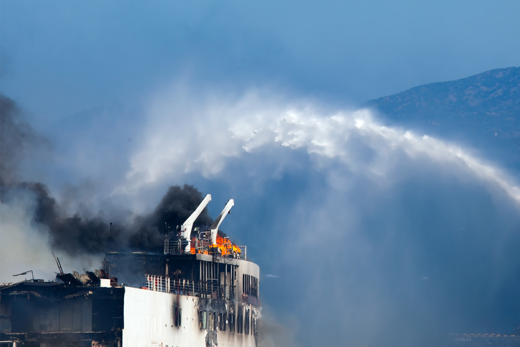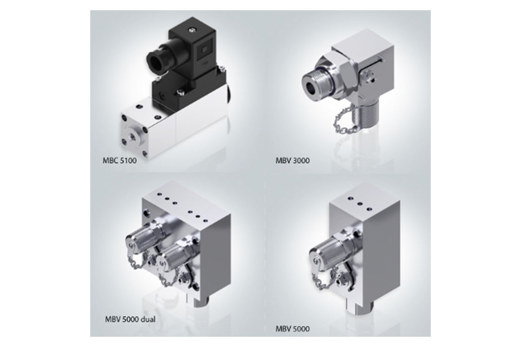
SOLAS 282, which is now enforced by the three leading organizations, focuses on preventing and mitigating the serious effects of fires on-board ships.
To do so, the circular specifies that only metals with a melting point above 930°C can be used in risk areas such as engine, turbine, and gearbox installations.
The Safety of Life at Sea (SOLAS) convention is regarded as the most important of all international treaties concerning the safety of vessels. The main objective is to specify minimum standards for the construction, equipment, and operation of ships regarding safety.
The implementation of SC 282 is driven by:
- IMO, International Maritime Organization
- IACS, International Association of Classification Societies
- CIMAC, International Council on Combustion Engines

Comply with stainless steel components
Danfoss supports a fast implementation of the Unified
Interpretation of SC 282 that is generally regarded as the most important of all the international treaties concerning safety at sea. To accommodate the requirements of SC 282, Danfoss offers a wide product program of stainless steel, comprising of:
- The MBC 5100 pressure switch with stainless steel process connection
- The MBV 5000 stainless steel block pressure test valve
- The MBV 3000 stainless steel test valve for pressure cartridge transmitters
- The MBS 3100/3300 stainless steel cartridge pressure
transmitter - The MBS 5100 pressure transmitter with stainless steel
process connection - The MBV 2000 stainless steel one-way test valve
More stainless steel components from Danfoss approved for marine applications are in the pipeline as we seek to promote the continuous improvement of safety at sea.
If you want to know more about the possibilities, please contact Danfoss.
